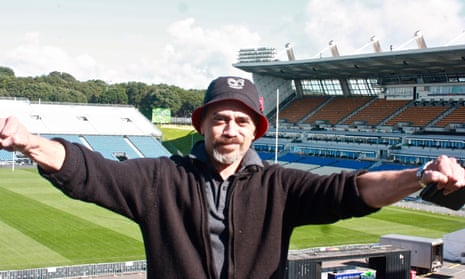
LeagueNews.co | Cooper McEnroe
Paddy Reuben, a devoted fan of the New Zealand Warriors, recalls his first encounter with the team back in 1995.
He and a friend managed to scale a rail-side fence at Carlaw Park to catch a glimpse of the team playing the Canberra Raiders.
Despite the danger of passing trains, Reuben was captivated by the experience and has remained a loyal supporter ever since.
Over the past decade, the Warriors have experienced a rollercoaster ride of disappointing seasons.
Reuben's friends would often question his dedication to the team.
However, with the Warriors currently sitting in third place on the National Rugby League (NRL) table and securing a playoff spot under new coach Andrew Webster, Reuben's dedication is finally paying off.
Now, his friends are the ones asking, "How about those Warriors?" and Reuben can confidently respond, "I told you so!"
Interestingly, the rise of the Warriors coincides with a decline in popularity for men's rugby union in New Zealand.
Rugby union has long been considered the national sport, with New Zealanders strongly identifying with the game.
However, attendance at domestic rugby union matches is dwindling as the nation's love for rugby league and the local team, the Warriors, is reignited.
On the other hand, local rugby union franchises have failed to generate the same level of excitement.
Super Rugby, a competition that often results in one-sided matches between New Zealand and Australian teams, has been labeled as "arguably the most boring competition in the history of rugby union" by sports journalist Mark Reason.
This sentiment further contributes to the shift in focus towards rugby league.
The resurgence of the Warriors and the waning popularity of rugby union in New Zealand reflect a changing landscape in the nation's sporting preferences.
As rugby league gains momentum and captures the hearts of fans like Paddy Reuben, the once-dominant rugby union is facing challenges in maintaining its status as the national sport.
